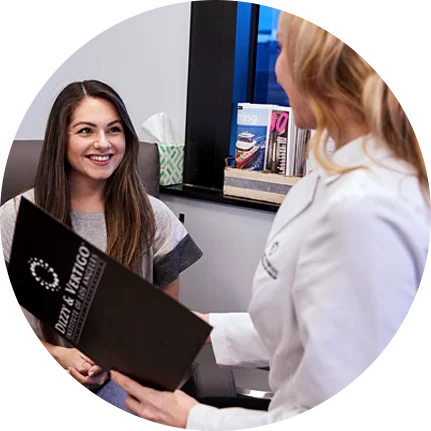Vertigo Specialist Near Me: What to Expect
Vertigo Specialist Near Me: Things to Expect Encountering dizziness or even a spinning sensation may disturb everyday life, usually leaving people trying to find answers. For all, vertigo may be debilitating, rendering it essential to find specific care. If you're contemplating viewing a vertigo treatment near me, here's what you may anticipate during this process and how specialists address that frequent issue.

What's Vertigo, and Why Find a Consultant? Vertigo isn't only occasional dizziness; it's a certain sensation wherever you are feeling like both you or your surroundings are spinning, frequently creating imbalance and actually nausea. This condition can base from various issues, including inner hearing problems, neurological problems, or inflammation. While normal physicians usually handle milder dizziness symptoms, persistent or significant vertigo an average of needs a specialist's evaluation to identify their specific trigger and produce a targeted treatment plan. Initial Consultation: Analyzing Your Symptoms When visiting a vertigo expert, the first step is a complete consultation. Specialists will have a step-by-step medical record, wondering about indicators such as for instance dizziness causes, their volume, and their intensity. They will also get details about your all around health, medications, and any prior instances of ear attacks, incidents, or migraines that can connect with vertigo. Knowledge these factors allows specialists to narrow down potential triggers special to each patient. Diagnostic Tools and Methods Vertigo specialists often influence very particular diagnostic tools to learn the main causes. Frequent tests might contain: • Videonystagmography (VNG): Procedures involuntary eye actions, which can indicate issues with inner hearing balance systems. • Reading Checks (Audiometry): Essential for deciding whether internal ear disorders contribute to vertigo. • Imaging Scans (MRI/CT): These could be required if neurological triggers are suspected. • Bodily Maneuvers (e.g., Dix-Hallpike): Used to identify situations such as for instance benign paroxysmal positional vertigo (BPPV) by assessing how improvements in head place influence dizziness. These diagnostic resources support specialists differentiate between causes like inner head fluctuations, headaches, as well as neurological diseases. Therapy Approaches Once a diagnosis is made, specialists modify cure strategy depending on the vertigo's origin cause. Treatment plans may possibly contain: • Vestibular Rehabilitation: Some workouts designed to reinforce your inner head and minimize imbalance.

• Drugs: To handle symptoms like sickness or dizziness. • Canalith Rethinking Maneuvers: Specific mind activities that overcome BPPV by moving dislodged crystals in your ear. • Lifestyle Changes: Guidelines may possibly contain nutritional changes or controlling strain, as equally can impact vertigo episodes. Seeking treatment from a vertigo expert makes for a designed and effective strategy, providing individuals the various tools to control or resolve their symptoms. If vertigo has been holding you straight back, consider hitting out to a consultant near you. The proper attention will make all of the difference in regaining balance and stability in your daily life.